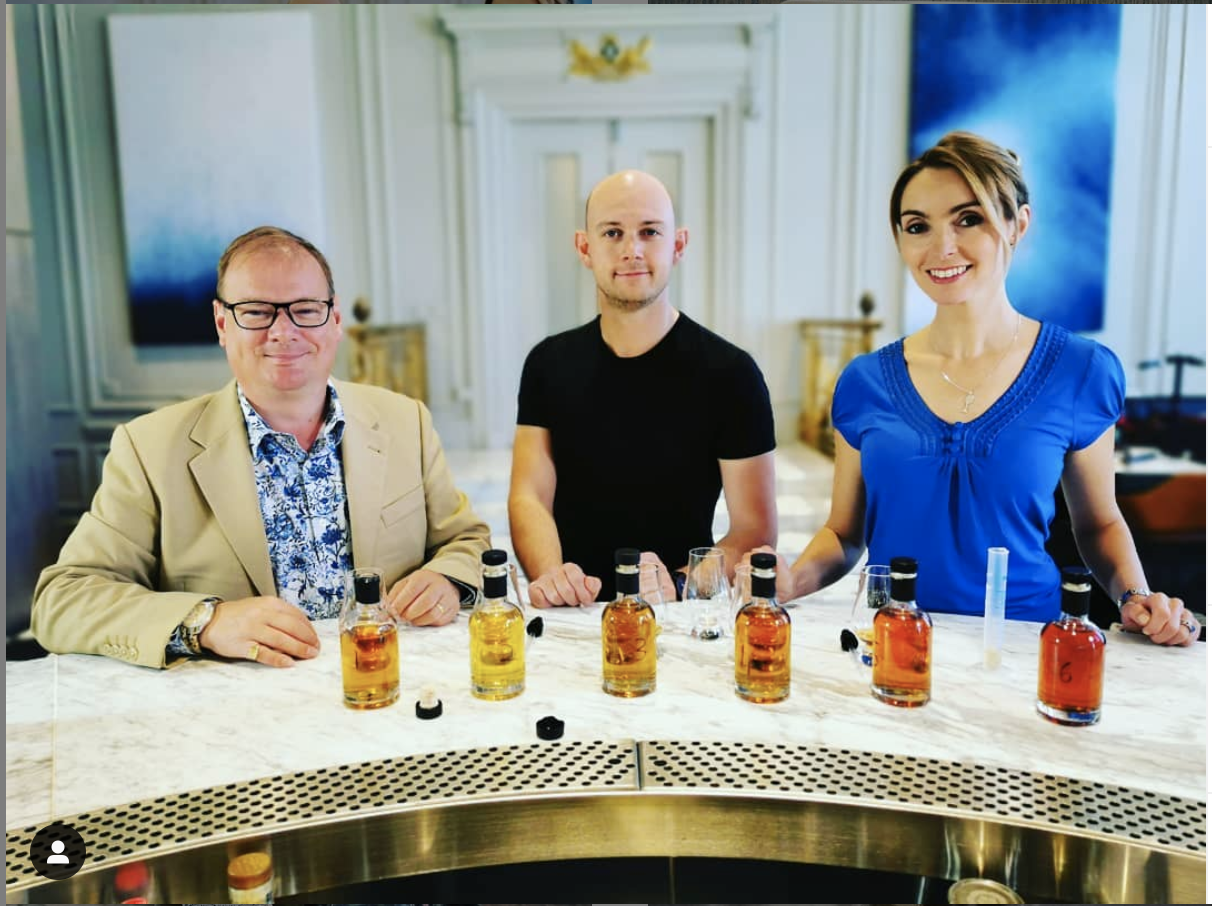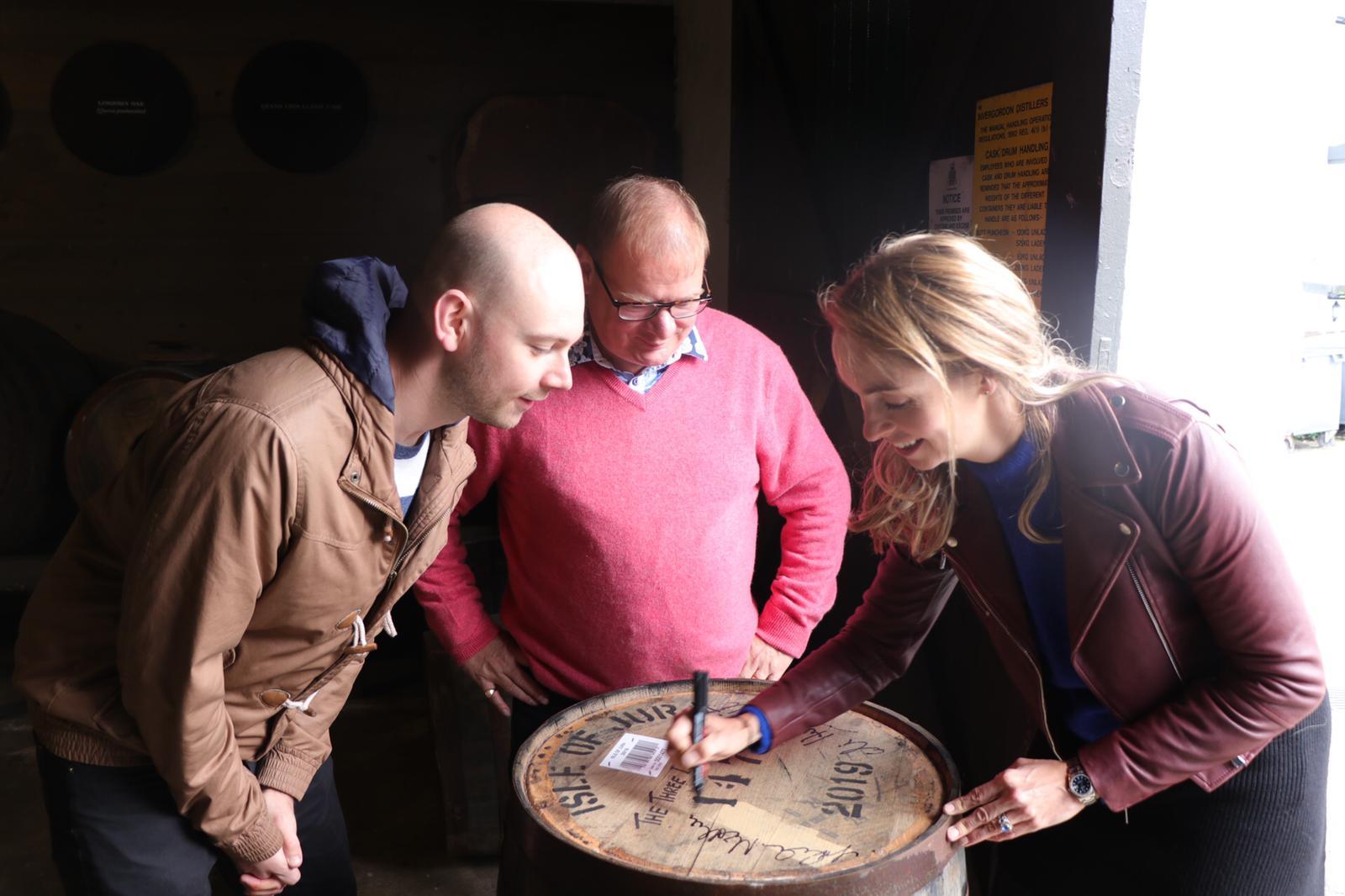The best cheap Scotch, dream whisky food pairings, and the world's weirdest dram according to Amazon Prime's Three Drinkers

Your support helps us to tell the story
From reproductive rights to climate change to Big Tech, The Independent is on the ground when the story is developing. Whether it's investigating the financials of Elon Musk's pro-Trump PAC or producing our latest documentary, 'The A Word', which shines a light on the American women fighting for reproductive rights, we know how important it is to parse out the facts from the messaging.
At such a critical moment in US history, we need reporters on the ground. Your donation allows us to keep sending journalists to speak to both sides of the story.
The Independent is trusted by Americans across the entire political spectrum. And unlike many other quality news outlets, we choose not to lock Americans out of our reporting and analysis with paywalls. We believe quality journalism should be available to everyone, paid for by those who can afford it.
Your support makes all the difference.From Scotland to Japan, Ireland to Kentucky, whisky is still taking the world by storm and rare whisky will now net you a better financial return than wine, oil or gold.
TV drinks trio Aidy Smith, Helena Nicklin and Colin Hampden-White, known collectively as The Three Drinkers, are launching the second part of their Amazon Prime TV Series this December, focused on all things whisky.
Part one of the show is already available to watch in both the US and UK, and we spoke to the three experts ahead of the launch of the next instalment asking some key questions to help you get the most out of your whisky.
What’s the best inexpensive Scotch whisky in your opinion?
HN: The good news is that quality whisky doesn’t have to be super expensive. I often introduce non-whisky drinkers to the spirit with Glen Moray, who have a varied range and start from as little as £17 a bottle. They make single malts from Speyside and are perfect for starting a whisky journey.
AS: It’s worth stocking up during the run up to the holiday seasons as many whiskies are heavily discounted around this time too. Especially Black Friday, which is just around the corner.

What are the best investments in whisky?
CHW: I’d recommend investing in rare bottles from single casks, preferably which have been bottled by the distilleries themselves. Choosing bottles with a good amount of age (over 20 years old), helps. Otherwise you can buy a whole cask. There’s a number of companies out there which help you do this, I tend to use Cask Trade*.
What food is good with whisky?
AS: In Scotland, it’s traditional to add whisky to porridge in the morning and add it to haggis in the evenings. However, I really enjoy it with a stodgy macaroni and cheese pie (another Scottish favourite), with a few squares of chocolate and anything with batter; a dram helps cut right through and works so well.
HN: Whisky and chocolate for me is an ultimate pleasure.

What's the weirdest whisky in the world?
HN: Oh that’s easy - Fishky. We tried a whisky which was aged in old herring casks. Would I recommend it? No.
Can Scotch come from outside Scotland?
AS: Nope. ‘Scotch’ has become a synonym for whisky but really, ‘Scotch’ is just short for Scotch whisky, i.e. from Scotland and only Scotland. Whisky can of course come from many other places, especially Japan, Ireland and the USA, but will never be called ‘Scotch’. Sometimes the spirit is spelled ‘whiskey’, but from Scotland, it’s only ever ‘whisky’.
Where other than Scotland is making great whisky?
CHW: Oh, lots of places. Scotland is certainly being given a run for its money in North America, where several distillers are creating great quality single malt whiskies. The style is very different from Scotch though. In Scotland, the casks loose around 2% alcohol a year, known as ‘the angel’s share’, whereas in Texas, for example, with the heat, this can be as high as 15%. This greater, quicker loss makes the whiskies in the US mature at a much faster rate, giving a rich and intense whisky at a higher proof. It would take a Scotch four times longer to achieve the same level of flavour concentration from the cask compared to a whisky aged in Texas. Balcones in Texas have made great single malt for a few years now. FEW is another craft distillery that also produces excellent single malt. It hails from the home of Prohibition in Evanston, Illinois.
AS: It’s worth noting that although Scotch must be matured for three years in oak casks, single malt whisky from other countries does not. For example, in Ireland, they are able to use other types of wooden casks and there is currently a movement to experiment with cherry and other fruit woods. A good example to look out for is Method and Madness from Irish distillers.
HN: And don’t forget Japan, stunning whiskies worth a lot of money can be found from there. Did you know though, that Japanese whisky isn’t necessarily Japanese? In fact, under Japanese rules, Scotch whisky can be imported in bulk from Scotland and blended into Japanese whisky and still be called Japanese Whisky.
Which resources would you suggest people start with for solid information about whisky?
AS: We really found Whiskypedia by Charles MacLean helpful, with pages on production and information on all of the Scotch distilleries.
CHW: I’d recommend an audio website from the USA called whiskycast.com. It’s by Mark Gillespie and is highly entertaining and informative.
AS: My nuggets also often come from friends in the bar trade who are creating innovative cocktails using unusual whiskies from all around the globe. I’d therefore suggest talking to bar people and ask advice from everyone working with the spirit day in day out. Above all, all three of us agree that the best way to learn is through experience, so go grab a dram of whisky old enough to vote and begin your whisky journey the right way!
Finally, tell us a little bit about the show.
AS: We’re three professional drinks journalists who knew each other for years in the business and became good friends. It dawned on us that there really wasn’t that much on TV to do with drinks beyond swirling glasses and tasting notes – and that’s boring. So, we had the bright idea one night in our favourite whisky bar to create our own TV Series. The idea was developed in March 2019 and by November 2019 Part 1 was live, so it’s been a quick progression.
HN: In terms of style, it’s a travel show with a drinky twist as three friends with a passion for drinks embark on a road trip through Scotland. We visit some of the most modern and historic distilleries as well as exploring local delicacies. There are a bunch of challenges and fair bit of ghosting hunting too. We wanted viewers to be inspired to visit Scotland and start tasting whisky if they haven’t been and if they don’t already. It’s not about facts rammed down your throat, but you do end up learning a lot without necessarily realising.
* UPDATE: (13.11.19) Following publication of this article, we have been asked to make Sir Colin Hampden- White's interest in Cask Trade clear; he is one of the directors of the company.
Join our commenting forum
Join thought-provoking conversations, follow other Independent readers and see their replies
Comments